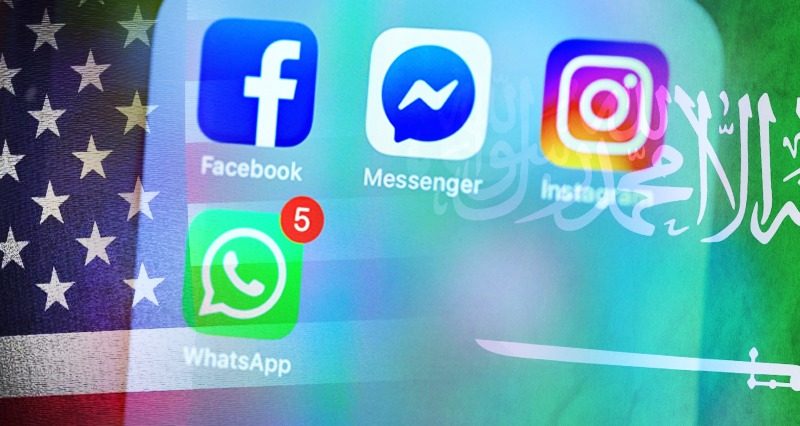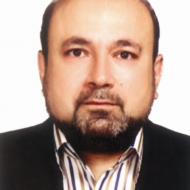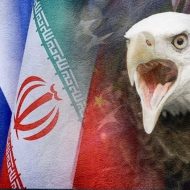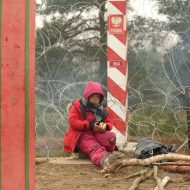Around six years ago, in October 2013, I was invited to deliver a speech at an international conference hosted by ICRC and Jamia Millia Islamia University in New Delhi. My speech was on “The Pros and Cons of Social Media”.
At that time, I warned about the possibility of governments misusing social media resources to spread their influence, point out how the internet could become a weapon in the hands of certain governments ready to use the technology against their populations and their political enemies.
These forces have been able to take control of social media sites, eliminating any voice which speaks against them on social media by shutting down dissenting accounts.
When President Donald Trump visited Riyadh in 2017, one of the agreements he made with Saudi authorities helped them establish a center for monitoring the social media in the Middle East, granting them an initial budget of five billion dollars.
Since social media has become a part of everyday life for people all around the world, it has also become a tool in the hands of Americans and their allies in their fight against any government that opposes their interests.
By now, everyone knows that the Arab Spring revolutions in the 2010s were predominantly organized on social media: without access to social media, the demonstrators wouldn’t have had any tools to communicate with each other.
While some demonstrations came about spontaneously, recent large scale protests have also been heavily influenced by outside pressure online. Activists who pose a threat to US hegemony are coming under increasing pressure and have had their access to internet resources limited, while those that push Washington’s line are promoted…Look at what happened in Sudan.
When Omar Al-Bashir was fulfilling his role as Saudi Arabia’s ally in its war against Yemen, the situation in Sudan was calm– however, after he decided to pull out of the alliance, attacks against him on social media quickly initiated, eventually leading to his ouster.
According to the statistics, more than 90% of the messages sent on social media against Al-Bashir were initiated from the Persian Gulf Arab countries.
Iran has experienced the same thing in the past.
Sudanese protests began last Dec. after the govt tripled the price of bread. Those demonstrations quickly morphed into calls for their ruler of 30 years to step down.
Omar al-Bashir was removed in April in a military coup. Citizens have been demanding civilian rule ever since. pic.twitter.com/OTAlUNiOCQ
— AJ+ (@ajplus) June 13, 2019
In late 2017 early 2018, after the JCPoA had been signed and everyone expected economic situation would improve, thousands of people suddenly went to the streets asking for economic, social and even political reforms.
These people were organized on social media: their entire planning process and conversations took place online.
This is not to say the country wasn’t facing serious economic problems, it was. Even high ranking official accepted that economic reforms needed to be made… but when the demands of the demonstrators started to shift from economic and social questions toward political demands many become suspicious– especially given the fact that the demands of different people in different parts of the very large country were almost exactly the same, as were the slogans.
In a study conducted by Iranian Universities, it was found that more than 95% of messages sent on the Iranian Social Media had come from a small country in Europe Called Albania and the Persian Gulf Arab countries.
The investigations by Iranian authorities uncovered a center which had been established in Albania by the Mojahedin Khalgh (an opposition organization which has been seen as a terrorist group by the US and European countries for many years). Members of the group had fled Iraq after the fall of Saddam Husain and were granted asylum thanks to US intercession.
A picture from inside Camp Ashraf in Albania that has been released lately, shows MEK terrorists working with computers. Now that they are too old and too weak to run Kurds by tanks or throw acid at women or burn small kids alive, they go online and spread fake news 24/7. pic.twitter.com/96mBpGdG2l
— Zahra Shafei 🇮🇷 (@shafei_d) October 20, 2019
Five thousand members of this group were employed by a company owned by Saudi Arabia and their only job was to impact the social media in Iran.
They were trained to produce social media bots which sent messages to thousands of people on social media masquerading as Iranian citizens.
Using this method, they were able to make people believe that millions have just one demand, the fall of the regime, and that it is time for them to go to the streets and join the others.
Thousands were deceived by these messages and went to the streets. The bots were able to convince these people to move from one city to another and take pictures and films to be distributed so that others inside and outside of the country would believe something big was happening.
In Iraq, America sponsors more than 5000 NGOs, many of which it established itself after invading the country.
The US doesn’t sponsor these NGOs because they favor broad social activism, the sponsor them because they want to use them in a certain period of time for their own agenda.
When the previous prime minister of Iraq Mr. Nouri Al-Maleki refused to sign an agreement which gave the Americans the right to stay in Iraq with political and judicial immunity, these NGOs suddenly all moved against him on social media and ISIS became so powerful that it reached the borders of the capital Baghdad.
At that time the Americans refused to deliver Iraq weapons and airplanes, despite the fact that the Iraqi government had already paid for them, claiming that they were afraid these weapons would fall into the hands of ISIS.
Since that time, nearly everytime the Iraqi government has refused to implement a policy the Americans proposed, social media sites and NGOs have started attacking the government en-masse and moving people into the streets.
The reason people are going out into the streets is always ostensibly economic and social, yet the slogans or the demand of the demonstrators always end up with the same message: “the government must be overthrown.”
Once again, the statistics here show that more than 90% of messages which went out on social media came from the Persian Gulf Arab countries, and particularly from large social media centers established by the US and Saudi Arabia.
Last week we witnessed the Lebanese people becoming fed up with the social and economic situation in their country and taking to the streets in protest. While this happened for a real and understandable reason, after things kicked off, Social Media in throughout the country was flooded with fake news about the Lebanese Government and politicians. NGOs sponsored by US and Saudi Arabia started distributing food among demonstrators so that they wouldn’t need to leave the streets.
The people of Lebanon took to the streets like this. Twice, for two weeks. Their Prime Minister announced his resignation.
What’s America’s excuse again? It’s not too late. #LebanonProtests pic.twitter.com/Dq23c585vh
— Big Boss (@escapedmatrix) October 29, 2019
The NGOs even built free internet WIFI broadcasting relays in the places where the internet had been switched off in Lebanon. They brought the demonstrators electric generators and paid singers to entertain the people, and distributed thousands of free umbrellas between the demonstrators when it started to rain.
And let us not forget about the thousands of flags and other symbols they distributed to encourage young people to stay in the streets.
The demonstrations which resulted from serious economic and social problems quickly turned into political demonstrations as participants were encouraged to chant slogans about overthrowing the government.
For those who are not familiar with the situation in Lebanon, it is important to note that the country does not have a political system like most other countries. Their system was implemented by France and imposed on them– if the demonstrators demands for the government to resign are realized, Lebanon would likely have no administration for a couple of years which would only make the social and economic problems worse.
The demonstrators know that changing the political system is only possible by changing the constitution through the parliament and any other action will result in chaos, which the organizers of the demonstrators seem to favor, just as they had in Libya.
Once again, a statistic compiled by Lebanese media shows that more than 90% of messages sent regarding the demonstrations came from the Persian Gulf Arab countries.
This new weapon isn’t only being used in the Middle East: the same thing is happening inHong Kong against China and against Russia in order to influence the latest city council elections.
The US-Iran standoff has shifted, from high seas of the Persian Gulf to dry land in the capitals Baghdad and Beirut.
“Popular protests in the Middle East cannot be separated from the confrontation that is going on between the two powers.”
—@NoamRaydan https://t.co/u2er5S54rK— Alison Meuse (@AliTahmizian) November 1, 2019
The common demand of overturning the government is partial proof that the same strategy is being implemented in different places across the world and that is is being generated by a singular source.









Leave a Reply